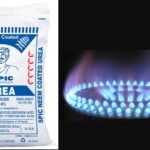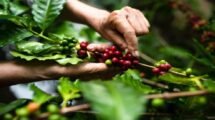Indian Farmers Fertiliser Cooperative (IFFCO), a public sector fertilizer firm, is the first to benefit from the Sri Lanka government’s decision to make a significant shift in its organic policy by deciding RTO allows chemical fertilizer imports.
It has started the process by importing 3.1 million liters of nano nitrogen liquid fertilizer from India. The nano urea was manufactured by IFFCO, and the purchase is an indication of Lanka’s policy shift, ostensibly for maize and paddy cultivation in the island nation.
Also Read: Nano urea can increase crop yields and save up to 50% of nitrogen & soil health
Organic policy
According to the planters’ community here, Sri Lanka also imported 30,000 tonnes of Potassium Chloride from the Republic of Lithuania,(a country in the Baltic region of Europe) last week, and India is in the process of shipping more Ammonium Sulphate in response to a drop in tea production.
According to sources in the planters’ community, the farmers’ protest, particularly by tea growers, has forced the Sri Lankan government to change its organic policy due to a drop in tea exports, which used to bring in around $3 billion per year.
‘By exporting the first consignment of Indian Nano Nitrogen liquid fertilizer to Sri Lanka, IFFCO has taken a historical step. It is a stepping stone to larger global partnerships for cooperatives and environmentally friendly Agri ecosystem,’ IFFCO’s Managing Director, US Awasthy, tweeted.
However, an email sent to IFFCO requesting information on the pricing of the shipments and the contracted quantities received no response.
Tourism earnings are down
Sri Lanka banned the import of all chemical fertilizers in May as part of its effort to become a 100% organic farming nation. Farmers were outraged by the decision, which came at a time when the country was reeling from the Covid crisis and the resulting drop in tourism earnings.
According to P.T. Joseph, Managing Director, Tropical Plantations, Vandiperiyar, tea bushes, unlike rubber, require constant fertilizer application at least two to three times a year. The lack of organic manure in the island nation, as well as a ban on chemical fertilizers, have had a negative impact on the crop, rendering the tea business unviable.
He stated that 100% organic tea farming is not feasible in a country like India and that the use of chemical fertilizer is necessary to achieve a good yield.
Sri Lanka primarily produces traditional tea varieties, and the drop in production would have given Nilgiris teas an advantage. Sri Lankan orthodox tea is superior in the international market, primarily exporting to Europe, whereas Indian orthodox grades find markets in West Asia, Russia, and Iran, among other places.
Also Read: Experts believe fertilizers subsidy ₹28,655 cr will benefit farmers, industry
According to him, the main selling point of the Sri Lankan product is the high quality of its packaging. It is past time for India’s tea industry to focus on packaging quality by increasing investments to compete, he added.















Add Comment